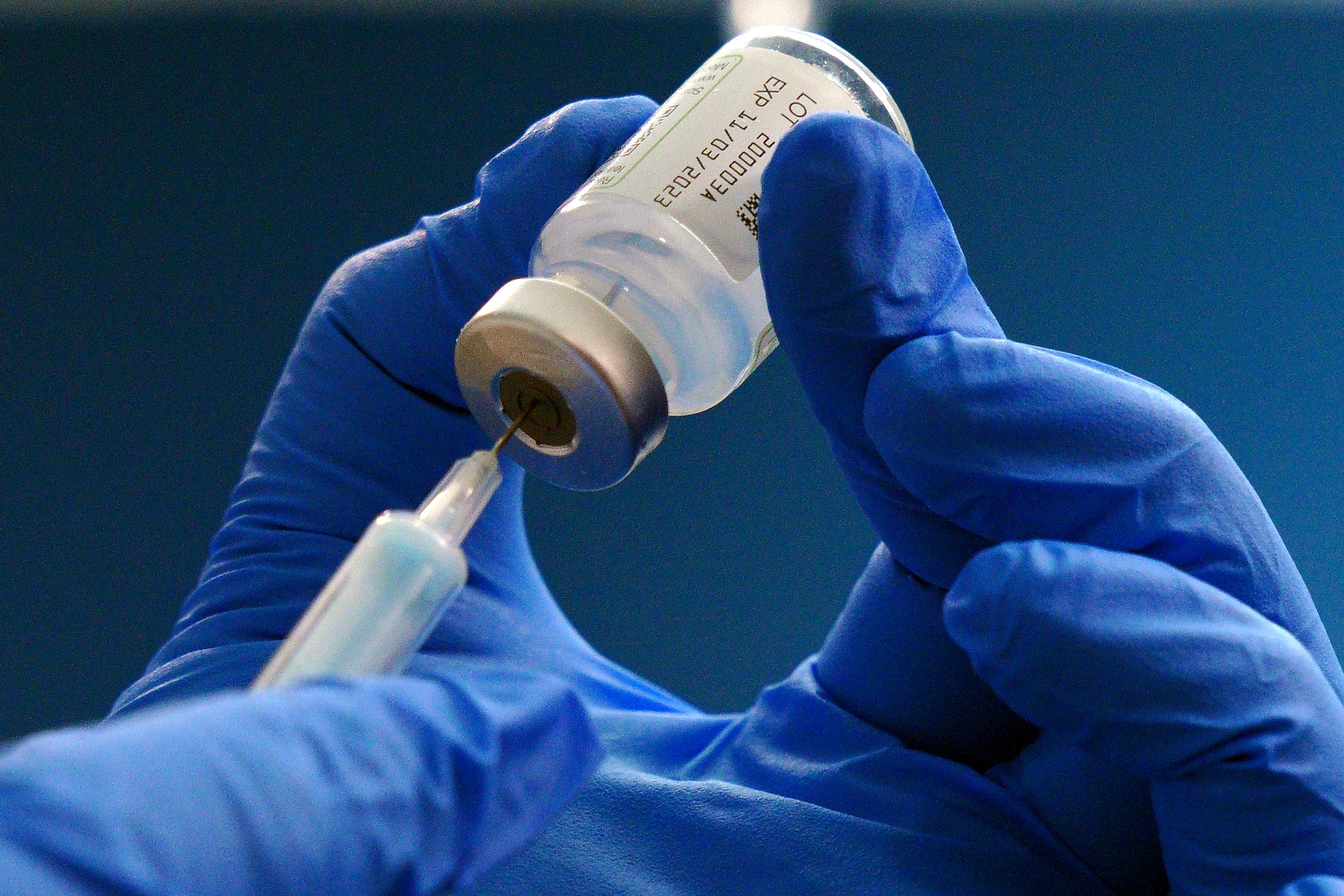New vaccine could protect against coronaviruses which have yet to emerge
Researchers are developing a vaccine that will protect us against the next coronavirus pandemic

Your support helps us to tell the story
From reproductive rights to climate change to Big Tech, The Independent is on the ground when the story is developing. Whether it's investigating the financials of Elon Musk's pro-Trump PAC or producing our latest documentary, 'The A Word', which shines a light on the American women fighting for reproductive rights, we know how important it is to parse out the facts from the messaging.
At such a critical moment in US history, we need reporters on the ground. Your donation allows us to keep sending journalists to speak to both sides of the story.
The Independent is trusted by Americans across the entire political spectrum. And unlike many other quality news outlets, we choose not to lock Americans out of our reporting and analysis with paywalls. We believe quality journalism should be available to everyone, paid for by those who can afford it.
Your support makes all the difference.A new vaccine could be effective against coronaviruses which have yet to emerge, with hopes it could be used to battle future pandemics, research suggests.
Scientists at the University of Cambridge, the University of Oxford, and Caltech in the US are developing a novel approach called “proactive vaccinology”, which aims to train the body’s immune system to recognise several different coronaviruses.
The vaccine used antigens – a substance that triggers an immune response in the body – found in eight different coronaviruses, including those circulating in bats. This trains the immune system to go after the parts of the antigens that are shared across the viruses and other similar ones, including those not included in the vaccine.
The vaccine, for instance, does not include the Sars-CoV-1 virus, which led to the 2003 SARs outbreak, but can produce an immune response to it.
Usually vaccines, such as those used for the Covid-19 outbreaks, work by using a single antigen to train the immune system to target a specific and single virus.
“Our focus is to create a vaccine that will protect us against the next coronavirus pandemic, and have it ready before the pandemic has even started,” said Rory Hills, a graduate researcher in the University of Cambridge’s Department of Pharmacology and first author of the report.
He added: “We’ve created a vaccine that provides protection against a broad range of different coronaviruses – including ones we don’t even know about yet.”
The results have been published in the journal Nature Nanotechnology.
Professor Mark Howarth in the University of Cambridge’s Department of Pharmacology, senior author of the report said: “We don’t have to wait for new coronaviruses to emerge. We know enough about coronaviruses, and different immune responses to them, that we can get going with building protective vaccines against unknown coronaviruses now.
“Scientists did a great job in quickly producing an extremely effective Covid vaccine during the last pandemic, but the world still had a massive crisis with a huge number of deaths. We need to work out how we can do even better than that in the future, and a powerful component of that is starting to build the vaccines in advance.”
The study has shown the new vaccine, called “Quartet Nanocage”, raised a broad immune system response in mice, including those that had already been immunised against Sars-CoV-2 which caused the 2020 pandemic.
According to the study, the vaccine is “simpler” in design than others that are being developed, and may be used for developing vaccines for other health issues. The study should enter Phase 1 clinical trials by early 2025.
The research was funded by the Biotechnology and Biological Sciences Research Council.
Join our commenting forum
Join thought-provoking conversations, follow other Independent readers and see their replies
Comments